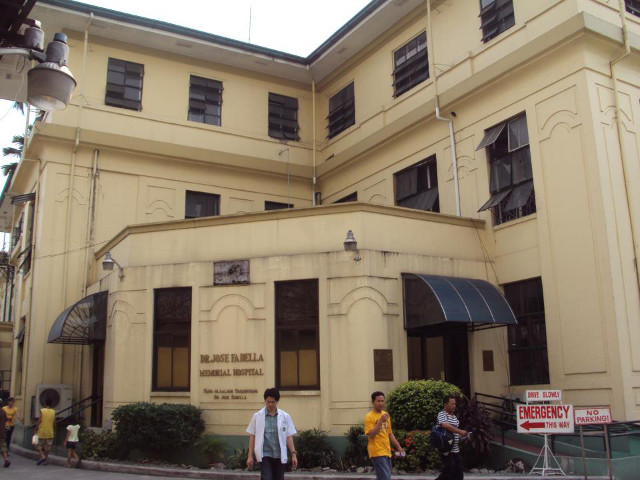SUMMARY
This is AI generated summarization, which may have errors. For context, always refer to the full article.

MANILA, Philippines – Following a mercury-spill incident at the Dr Jose Fabella Memorial Hospital in Manila on Thursday, August 8, non-profit organization Ban Toxics (BT), lobbied for better storage and disposal programs for mercury in hospitals.
According to a report by Balitanghali, several bottles of dental amalgam containing mercury broke in the hospital’s property building.
While the Department of Health (DOH) clarified that ill effects of mercury exposure may be felt only after prolonged exposure, it is best to take the necessary precautions.
After tests revealed high contamination of mercury in the air, 40 children from the adjacent pediatric ward were evacuated. The DOH is also closely monitoring 30 personnel who came in close contact with the spill.
Reports say that the spill was immediately contained and happened only in Fabella’s property building, where no patients are housed.
The DOH banned the use of mercury-containing devices in 2008, but an efficient mercury storage, collection and disposal system is yet to materialize. The vials in Fabella hospital were kept in the supply room, awaiting disposal, which may only be conducted by the Department of Environment and Natural Resources.
Act quickly
Ban Toxics, a group that aims to eliminate the use of toxic chemicals, is urging the government to act quickly to resolve the issue.
BT executive director Richard Gutierrez called for the immediate creation of proper mercury storage and disposal programs.
“It’s not enough that we phase out mercury in hospitals, we should devise a plan and create a mercury storage facility that is safe and away from the people,” he said.
“We call on the government to act in a concerted manner with regard to its approach on mercury.”
BT is currently working on a national program aimed at developing a centralized, knowledge-based and sustainable approach in handling the toxic metal.
The group calls for strong customs checks to stop the importation of mercury along with banning its use in dental clinics. Empowering local government units to act on issues concerning mercury is also part of their campaign.
Since 2006, BT has been working closely with government agencies, partner communities and other NGOs at both the local and international levels. They conduct education campaigns, training and awareness-raising, and policy-building and advocacy programs in the hope of banning the use of harmful toxins. – With reports from Ira Agting/Rappler.com
Add a comment
How does this make you feel?
There are no comments yet. Add your comment to start the conversation.